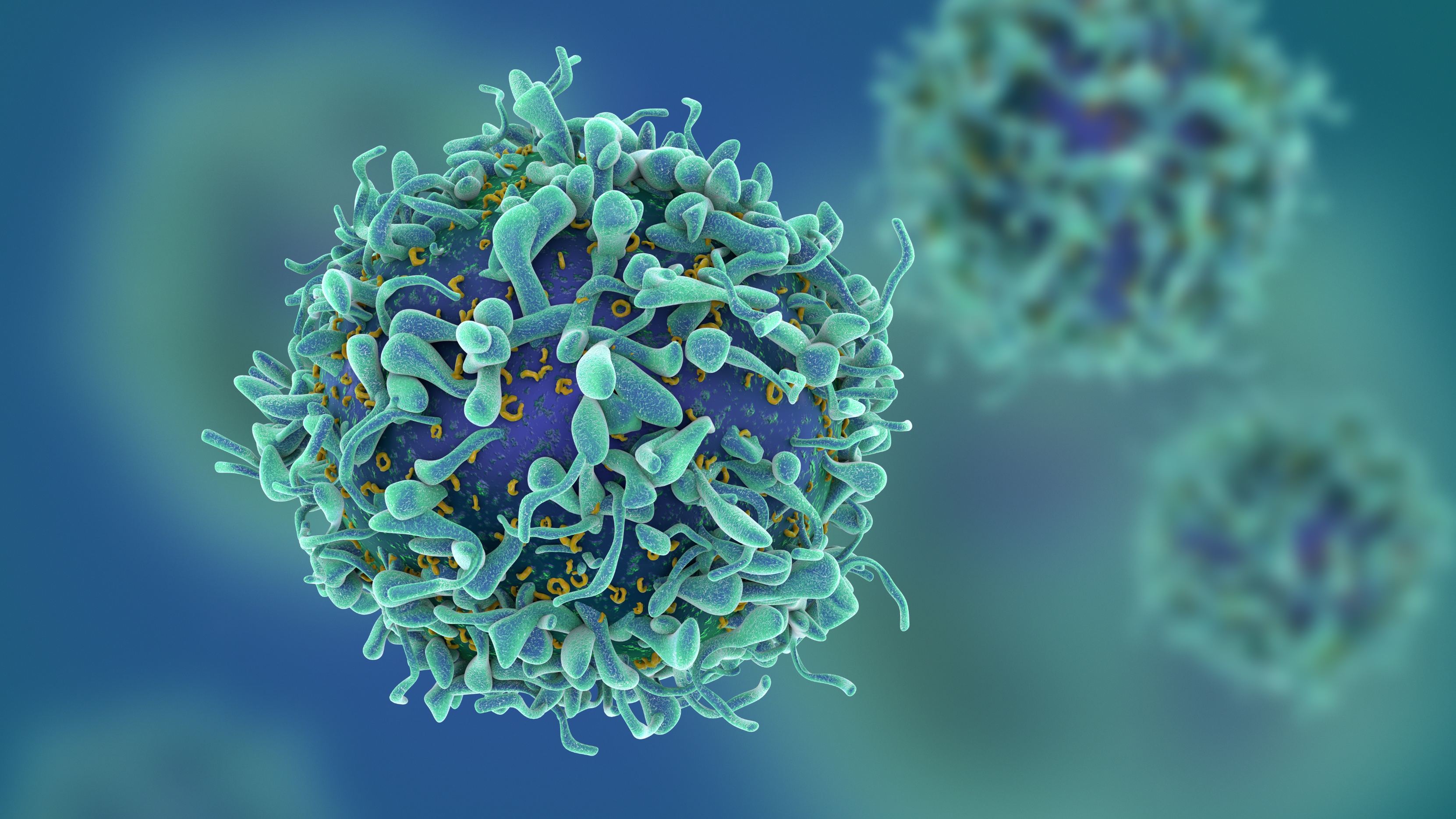Cancer immune cell: what have scientists discovered?
Researchers say newly found T-cell appears to target multiple forms of the deadly disease

A free daily email with the biggest news stories of the day – and the best features from TheWeek.com
You are now subscribed
Your newsletter sign-up was successful
The discovery of a killer cell in the human immune system could lead to a “one-size-fits-all” cancer treatment, according to a newly published study.
The team of Cardiff University researchers who made the find say the T-cell has already been used in lab tests to attack and destroy prostate, breast, lung and other cancer cells.
Although no tests have been conducted yet on human patients, scientists say the findings - outlined in a newly published paper in the journal Nature Immunology - have “enormous potential”, the BBC reports.
The Week
Escape your echo chamber. Get the facts behind the news, plus analysis from multiple perspectives.

Sign up for The Week's Free Newsletters
From our morning news briefing to a weekly Good News Newsletter, get the best of The Week delivered directly to your inbox.
From our morning news briefing to a weekly Good News Newsletter, get the best of The Week delivered directly to your inbox.
What have the researchers found?
One of the most groundbreaking advances in the fight against cancer in recent years is a treatment known as CAR-T immunotherapy. This therapy involves “harvesting a patient’s immune T-cells and reprogramming them to target specific proteins found on the patient’s cancer cells”, while leaving healthy cells undamaged, explains science news site New Atlas.
However, a major limitation facing researchers of CAR-T therapies has been the lack of a universal T-cell receptor (TCR) that can target different kinds of cancers in all patients.
But the T-cell discovered by the Welsh university team appears to be equipped with a new type of TCR that does exactly that.
A free daily email with the biggest news stories of the day – and the best features from TheWeek.com
This T-cell “recognises a molecule present on the surface of a wide range of cancer cells, and normal cells, and is able to distinguish between healthy and cancerous cells - killing only the latter”, The Independent reports.
In lab tests on mice and human cells, the T-cells equipped with the new TCR has been found to kill lung, skin, blood, colon, breast, bone, prostate, ovarian, kidney and cervical cancer cells.
And the reaction?
“If these sorts of effects can be replicated in humans,” says ScienceAlert, “we could be looking at a bright new future for T-cell treatments.”
According to Wales Online, experiments are under way to determine the precise molecular mechanism by which the new TCR distinguishes between healthy cells and cancer, and researchers hope to begin human patients towards the end of this year following further safety testing.
Cardiff University professor Awen Gallimore, a cancer immunology lead for the Wales Cancer Research Centre, said: “If this transformative new finding holds up, it will lay the foundation for a universal T-cell medicine, mitigating against the tremendous costs associated with the identification, generation and manufacture of personalised T-cells.
“This is truly exciting and potentially a great step forward for the accessibility of cancer immunotherapy.”
Alasdair Rankin of blood cancer charity Bloodwise added: “This research represents a new way of targeting cancer cells that is really quite exciting, although much more research is needed to understand precisely how it works.”
-
 El Paso airspace closure tied to FAA-Pentagon standoff
El Paso airspace closure tied to FAA-Pentagon standoffSpeed Read The closure in the Texas border city stemmed from disagreements between the Federal Aviation Administration and Pentagon officials over drone-related tests
-
 Political cartoons for February 12
Political cartoons for February 12Cartoons Thursday's political cartoons include a Pam Bondi performance, Ghislaine Maxwell on tour, and ICE detention facilities
-
 Arcadia: Tom Stoppard’s ‘masterpiece’ makes a ‘triumphant’ return
Arcadia: Tom Stoppard’s ‘masterpiece’ makes a ‘triumphant’ returnThe Week Recommends Carrie Cracknell’s revival at the Old Vic ‘grips like a thriller’
-
 Epstein files topple law CEO, roil UK government
Epstein files topple law CEO, roil UK governmentSpeed Read Peter Mandelson, Britain’s former ambassador to the US, is caught up in the scandal
-
 Iran and US prepare to meet after skirmishes
Iran and US prepare to meet after skirmishesSpeed Read The incident comes amid heightened tensions in the Middle East
-
 Israel retrieves final hostage’s body from Gaza
Israel retrieves final hostage’s body from GazaSpeed Read The 24-year-old police officer was killed during the initial Hamas attack
-
 China’s Xi targets top general in growing purge
China’s Xi targets top general in growing purgeSpeed Read Zhang Youxia is being investigated over ‘grave violations’ of the law
-
 Panama and Canada are negotiating over a crucial copper mine
Panama and Canada are negotiating over a crucial copper mineIn the Spotlight Panama is set to make a final decision on the mine this summer
-
 Why Greenland’s natural resources are nearly impossible to mine
Why Greenland’s natural resources are nearly impossible to mineThe Explainer The country’s natural landscape makes the task extremely difficult
-
 Iran cuts internet as protests escalate
Iran cuts internet as protests escalateSpeed Reada Government buildings across the country have been set on fire
-
 US nabs ‘shadow’ tanker claimed by Russia
US nabs ‘shadow’ tanker claimed by RussiaSpeed Read The ship was one of two vessels seized by the US military